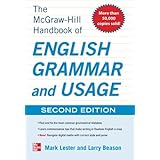macroeconomics : Related Words Words similar in meaning to macroeconomics
- topics categories«
- field of study«
- macroeconomics«
- macroeconomic expert«
- macroeconomist«
- economy«
- macroeconomic«
- economics«
- microeconomics«
- output«
- macroeconomy«
- unemployment«
- economic science«
- monetary policy«
- political economy«
- inflation«
- econometrics«
- price level«
- rate«
- fiscal policy«
- central bank«
- keynes«
- money supply«
- quantity theory«
- rational expectation«
- money«
- model«
- rbc model«
- price«
- investment«
- structural unemployment«
- worker«
- equilibrium«
- government spending«
- economist«
- macroeconomic policy«
- economic growth«
- friedman«
- aggregate demand«
- saving«
- national income«
- deflation«
- business cycle«
- wage«
- automatic stabilizer«
- recession«
- aggregate supply«
- potential output«
- capital«
- monetarism«
- classical economist«
- consumption«
- market«
- money market«
- classical unemployment theory«
- increase«
- discretionary fiscal policy«
- government bond«
- demand«
- lower price level«
- unconventional monetary policy«
- is curve«
- is/lm model«
- output increase«
- frictional unemployment«
- liquidity preference«
- independent central bank«
- neoclassical synthesis«
- keynesian theory«
- effect«
- monetarist«
- term bond«
- okun«
- empirical relationship«
- macroeconomic theory«
- national output«
- solow«
- robert solow«
- job vacancy«
- multiplier effect«
- downward slope«
- quantitative easing«
- lucas«
- labor«
- price index«
- unemployment rate«
- central banker«
- employment«
- classical model«
- economic output«
- keynesian economics«
- classical theory«
- skill«
- general theory«
- price increase«
- consumer demand«
- policy«
- theory«
- negative consequence«
- labor force«
- consumer«
- quantity«
- government«
- asset«
- determinant«
- job«
- fluctuation«
- term«
- tough economic times–a phenomenon«
- technological regress«
- role uncertainty«
- real wealth increase«
- rbc methodology«
- price level factor«
- output study economic growth«
- new keynesian response«
- net export effect«
- macroeconomic topic«
- macroeconomic output«
- macroeconomic models«
- late 1990s economist«
- is/lm.«
- gdp consistent«
- formal keynesian model«
- exogenous technological improvement«
- entire aggregate demand«
- conventional fiscal mechanism«
- common textbook model«
- basic macroeconomic concepts«
- as–ad diagram«
- aggregate demand–aggregate supply«
- ad–as diagram«
- ad expansion«
- ad curve shift«
- a curve shift«
- forecast«
- unemployment result«
- synthesis view«
- short term search process«
- policy lag«
- new classical«
- keynesian empirical model«
- inflexible price«
- growth stagnates«
- fundamental economic theory«
- exceeds supply«
- entire output gap«
- aggregated indicator«
- supply«
- ucla. november«
- technological shock«
- standard textbook model«
- real balance effect«
- private sector output«
- modern macroeconomic model«
- macroeconomic school«
- greek prefix makro-«
- classical microeconomics«
- factor«
- operation twist«
- negative supply shock«
- keynesian framework«
- howard r. vane«
- current monetary policy«
- austrian school«
- phillips curve relationship«
- neoclassical microeconomics«
- money velocity«
- macroeconomic phenomenon«
- inflationary gap«
- flat yield curve«
- capital utilization«
- term drop«
- solow model«
- neoclassical growth theory«
- conventional monetary policy«
- expenditure«
- productivity«
- run fluctuation«
- pull inflation«
- new keynesian model«
- macroeconomic fluctuation«
- great economist«
- ad model«
- money increase«
- economy function«
- aggregate supply curve«
- aggregate demand curve«
- income«
- upward sloping«
- push inflation«
- progressive income tax system«
- contemporary macroeconomics«
- new keynesian economist«
- dsge«
- real business cycle«
- bridge worker«
- rate effect«
- lm curve«
- idle resource«
- direct increase«
- is–lm model«
- contractionary monetary policy«
- % inflation rate«
- monetary factor«
- macroeconomic research«
- nominal rigidity«
- leijonhufvud«
- cyclical unemployment«
- new classical macroeconomics«
- foreign consumer«
- depreciation rate«
- imperfect market«
- blaug«
- decrease«
- wage due«
- frequent intervention«
- rough consensus«
- neoclassical growth model«
- microeconomic foundation«
- loose monetary policy«
- amount«
- central development«
- adaptive expectation«
- typical view«
- sticky price«
- output gap«
- dynamic stochastic«
- business cycle theory«
- bouman«
- finn e. kydland«
- total factor productivity«
- new keynesian economics«
- influential critique«
- great depression«
- modern economic theory«
- keynesian school«
- money demand«
- most economist«
- additional output«
- lucas critique«
- real output«
- pigou«
- john b. taylor«
- economic methodology«
- united state federal reserve«
- demand due«
- liquidity trap«
- ragnar frisch«
- edmund phelps«
- recent recession«
- stanley fischer«
- decision«
- pedagogical tool«
- a model«
- bond«
- fiscal stimulus«
- forecasting model«
- individual market«
- edward c. prescott«
- imperfect competition«
- macroeconomic model«
- saving rate«
- real price«
- effective tax rate«
- attempt«
- fundamental equation«
- comparison«
- phillips curve«
- broader class«
- franco modigliani«
- demand management«
- variety«
- keynesian economist«
- individual agent«
- keynesianism«
- additional expansion«
- oil shock«
- economic agent«
- irving fisher«
- entire economy«
- job prospect«
- monetary theory«
- james tobin«
- robert lucas«
- economic goal«
- behavior«
- central topic«
- wheatsheaf«
- production function«
- previous set«
- formal theory«
- temporary increase«
- specific market«
- recent theory«
- animal spirit«
- paul samuelson«
- real effect«
- term growth«
- decline«
- classical economics«
- ad«
- similar relationship«
- national account«
- price stability«
- conventional mean«
- corporate bond«
- broad field«
- inverse relationship«
- political motif«
- ludwig von mi«
- agent«
- classical school«
- tool«
- growth model«
- constant rate«
- resource«
- large amount«
- interrelation«
- service«
- impact«
- growth«
- positive relationship«
- capital stock«
- role«
- snowdon«
- inflation rate«
- john maynard keynes«
- milton friedman«
- international finance«
- tradeoff«
- lead«
- profit margin«
- larger population«
- unemployment benefit«
- major advantage«
- steady growth«
- axel«
- total income«
- human capital«
- technological advancement«
- political institution«
- is«
- bridge«
- equal amount«
- % decrease«
- mismatch«
- lag«
- oil crisis«
- recent past«
- phelps«
- federal reserve«
- technological advance«
- global economy«
- cost«
- gross domestic product«
- product«
- downturn«
- modern form«
- change«
- time«
- relationship«
- economic condition«
- technology«
- myriad«
- total amount«
- micro«
- supply-side economics«
- finance«
- economic expert«
- microeconomic expert«
- economic system«
- microeconomist«
- econometrist«
- econometrician«
- 1990s endogenous growth theory«
- Woodbury«
- William Stanley Jevons«
- William Henry Beveridge«
- Webb«
- Wassily Leontief«
- Ward«
- Vilfredo Pareto«
- Veblen«
- Turgot«
- Tobin«
- Tjalling Koopmans«
- Tjalling Charles Koopmans«
- Tinbergen«
- Thorstein Veblen«
- Thorstein Bunde Veblen«
- Thomas Robert Malthus«
- Thomas Malthus«
- Tawney«
- Stephen Leacock«
- Stephen Butler Leacock«
- Smith«
- Simon Kuznets«
- Simon«
- Sidney Webb«
- Sidney James Webb«
- Schumpeter«
- Richard Henry Tawney«
- Ricardo«
- Ragnar Frisch«
- Ragnar Anton Kittil Frisch«
- Pareto«
- Myrdal«
- Monnet«
- Milton Friedman«
- Mill«
- Meade«
- Marx«
- Malthus«
- Leontief«
- Leacock«
- Laffer«
- Kuznets«
- Koopmans«
- Keynes«
- Karl Marx«
- Karl Gunnar Myrdal«
- Joseph Schumpeter«
- Joseph Alois Schumpeter«
- John Stuart Mill«
- John Mill«
- John Maynard Keynes«
- John Kenneth Galbraith«
- John Galbraith«
- Jevons«
- Jean Monnet«
- Jan Tinbergen«
- James Tobin«
- James Edward Meade«
- Herbert Alexander Simon«
- Herbert A. Simon«
- Herb Simon«
- Helen Laura Sumner Woodbury«
- Hayek«
- Gunnar Myrdal«
- Galbraith«
- Frisch«
- Friedrich August von Hayek«
- Friedman«
- First Baron Passfield«
- First Baron Beveridge«
- David Ricardo«
- Beveridge«
- Baroness Jackson of Lodsworth«
- Barbara Ward«
- Arthur Laffer«
- Anne Robert Jacques Turgot«
- Adam Smith«



